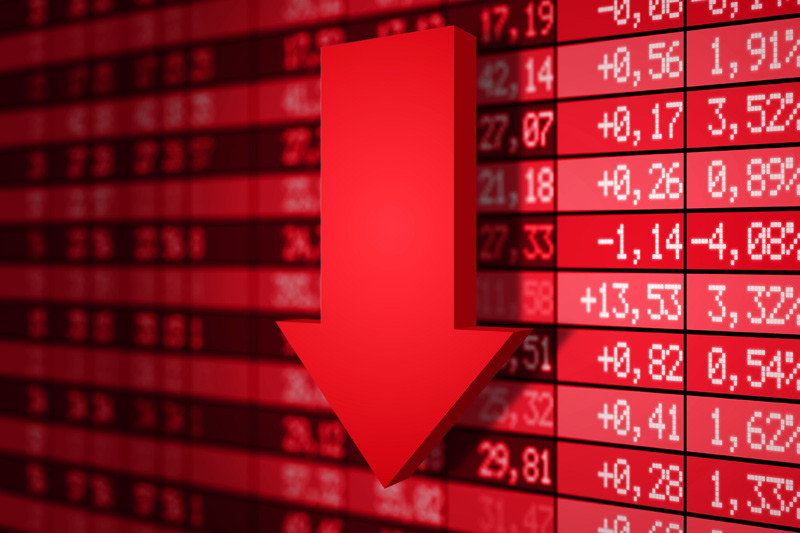
The week did not start so pleasantly for the stock markets in the Asia-Pacific region. Major stock indexes went down on Monday against the background of growing concern about the deteriorating epidemiological situation in the world. In particular, the rapid increase in the number of cases in Europe, as well as in the US.
For example, on Friday last week alone, the number of cases in the US rose to a record level of 83,700 cases. And the next day it almost reached the same level which ended at 83,000 cases. Of course, this cannot but cause concern for investors, who do not want to return to the situation that unfolded in the spring of this year. However, it is not yet possible to contain the growth of coronavirus infection.
In addition, another important and still unresolved issue affecting the mood of market participants is the adoption of a new financial incentive program in the US. Some US officials have not given up hope that the financial aid package will be ratified before the country's presidential election, although the chances of this remain minimal. Note that elections are already scheduled for next week, November 3.
Japan's Nikkei 225 index declined by 0.05%.
China's Shanghai Composite Index sank 0.86%. Marketplaces in Hong Kong are closed due to a public holiday in the region.
Very soon, the committee of the Communist Party of the PRC will convene for a regular meeting, the agenda of which will be extremely important. Discussion of a new plan for the development of the country's economy and social sphere for the next five years will begin this week. In many respects, the further growth of the state's economy and the steps that will be taken in foreign policy depend on decisions on this issue. That is why this meeting is of great interest to investors.
South Korea's KOSPI parted from 0.19%.
Australia's S&P / ASX 200 Index fell 0.18%.
Likewise, Europe stock exchanges also did not start the new week positively as reduction was recorded in almost all areas, without exception.
The general index of large enterprises in the European region Stoxx Europe 600 fell 0.71% in the morning, which forced it to move to the level of 359.92 points.
The UK FTSE 100 Index fell 0.29%. The German DAX index sank 2.28% and became the leader of Monday's decline. France's CAC 40 Index fell 0.71%. Italy's FTSE MIB Index parted from 1.03%. Spain's IBEX 35 fell 0.37%.
The negativity in European stock markets is still due to the increasing cases of COVID-19 patients and the introduction of strict restrictive quarantine measures. Some European countries have already started to implement curfews as a measure to counter the outbreak, however, there are no positive results so far.
In addition, market participants are expressing concern about the new stimulus program in the US. The entire decision-making process took an awful delay, which suggests that success in the negotiations should not be expected in the near future.
Among intraregional news, the most significant event of the coming week will be the next meeting of the European Central Bank, which will raise the most problematic issues in the region. The Bank of Japan is also scheduled to conduct a meeting and its decisions are also important for investors in the European region. The data on the level of GDP in the US may also have an important impact. The report for the third quarter of this year is expected to be presented this week.
In the meantime, market participants in Europe are analyzing the not so satisfying statistics of their region. There was a decrease in the level of the German business sentiment index for the second month of autumn. This happened after it showed steady growth over five reporting periods. Its unexpected fall is evidence of the growing problems in the region, which are primarily associated with the second wave of the COVID-19 pandemic.
The level of the business confidence index in the current month also decreased to 92.7 points, while the previous indicator consolidated at 93.2 points. Initial estimates were somewhat better with an expected reduction of no more than 93 points.
Thus, the negative wave continues to gain momentum in the European and Asian regions, which may cause an even greater decline in major stock indexes, especially on the eve of the presidential elections in the US.
 English
English 
 Русский
Русский Bahasa Indonesia
Bahasa Indonesia Bahasa Malay
Bahasa Malay ไทย
ไทย Español
Español Deutsch
Deutsch Български
Български Français
Français Tiếng Việt
Tiếng Việt 中文
中文 বাংলা
বাংলা हिन्दी
हिन्दी Čeština
Čeština Українська
Українська Română
Română

